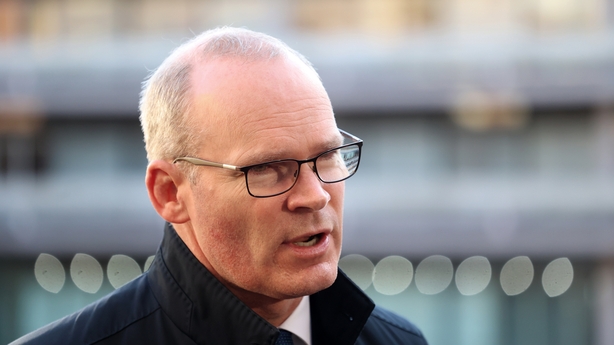There have been almost 12,000 pledges of accommodation from Irish people to refugees from Ukraine through the Irish Red Cross website.
On Monday, the Government announced an accommodation pledge register through the Irish Red Cross website.
Three quarters of the offers are for shared accommodation where people have a room to spare.
Irish Red Cross said it requires more information from 2,234 of those who registered.
A spokesperson has asked that those who have registered offers of accommodation "to bear with us and our contact team will be in touch over the coming weeks".
The organisation has pointed out that it took "a few months" to reach 1,000 pledges during Syrian refugee campaign a number of years ago.
Cash donations have reached €14m.
It says the Irish business community has come onboard "in great numbers".
The fundraising team has been contacted by 125 companies so far.
It said many community groups have also been reaching out to the charity about their fundraisers.
"We are just so grateful to such a wonderful reaction from the Irish people so far," the Irish Red Cross said.
We need your consent to load this rte-player contentWe use rte-player to manage extra content that can set cookies on your device and collect data about your activity. Please review their details and accept them to load the content.Manage Preferences
The highest number of accommodation pledges by county is 2,149 in Dublin, followed by 1,327 in Cork, and 663 in Galway.
Meanwhile, the Government is said to be open to setting up an Irish presence in Polish airports to facilitate people fleeing the war in Ukraine.
Speaking in the Dáil, Minister for Transport Eamon Ryan said the issue was discussed at a sub-committee of Cabinet earlier this week.
However, he stressed that such a measure would have to be led by a request from the Polish government.
He was responding to a question from Independent TD Cathal Berry, who suggested that Ireland should have a presence in Kraków and Rzeszów airports in Poland.
Separately, Minister for Foreign Affairs Simon Coveney has said there is no doubt in his mind that Russian President Vladimir Putin is guilty of committing war crimes in Ukraine.
Speaking on RTÉ's Drivetime programme, Mr Coveney said it was "pretty clear" given the pictures emerging from the crisis in the country.

"Undoubtedly civilians have been targeted in this war. Civilian infrastructure has been targeted, more than 200 schools have been destroyed so far, and yesterday I think people felt physically sick looking at images of a children’s hospital and maternity hospital in parts reduced to rubble," he said.
Citing Russia’s newly-imposed offence in which anyone questioning the war in Ukraine can be jailed for up 15 years, Mr Coveney said that "anybody in Russia who tells the truth will find themselves in prison, and they have effectively prevented Western media, social media platforms from reaching the population.
"That is what a state does when it doesn’t want the truth out there," he added.
Asked when actions further to sanctions may potentially be needed, namely militarily, Mr Coveney said the judgement that NATO states have made is that going to war Russia will only add to the problem rather than solve it.
Asked whether sanctions were enough when war crimes were being committed, Mr Coveney said "all of the tools" available were being used, citing moves such as holding Russia to account at the International Criminal Court and other bodies.
"This is a brutal war that Russia has decided to pursue, and every tool that’s available to the internal community beyond escalating this war outside of Ukraine is being used," he said.
"The judgement that NATO has made is that it will increase the extent of the war if it effectively declares war on Russia because of what it is doing in Ukraine," he added.
"I don’t believe its consistent for Ireland on one hand to say we won’t send lethal weapons to Ukraine, but at the same time call on NATO to go to war with Russia," he said.
Mr Coveney said the focus in Ukraine needs to be on de-escalation, through "intensive diplomacy", rather than on how the war could escalate.
He said he believed Russia had made a "very significant miscalculation" politically, economically and militarily, with an expectation that the war would finish within a matter of days, which hasn't happened.
Russia probably saw the EU as weak and divided, and indecisive, he added, and saw division in Washington, thus deciding this was the time to strike and enforce Russian influence on a foreign country.
He said he believed negotiators could get to a point where agreement is made, but added that "the only question is how much misery is inflicted on the population of Ukraine while we wait for that change of course".
"It is simply not tenable for Russia to maintain this war indefinitely into the future, to try and control a county the size of Ukraine.
"This has been in my view a terrible and historic mistake … I think Russia will look for a way out, and I think we need to focus on giving them that, but in no way selling out on Ukraine's sovereignty," he added.
"As Russia continues to escalate this, we have to respond to that. There are many credit ratings agencies predicting that Russia’s economy will default because of the extent of the sanctions we’ve imposed," he said.
"Ultimately we need to talk about how we de-escalate and move towards ceasefire and humanitarian corridors as opposed to talking about how we escalate even further a conflict that is already spiraling out of control," he added.
Mr Coveney said the Government has moved to increase cyber security and is on "higher alert" for cyber attacks.
"Anyone who thinks that because of traditional neutrality in Ireland that somehow Ireland won’t be targeted or Ireland isn't vulnerable, is very naïve. Cyber security is a significant threat for us," he said.







